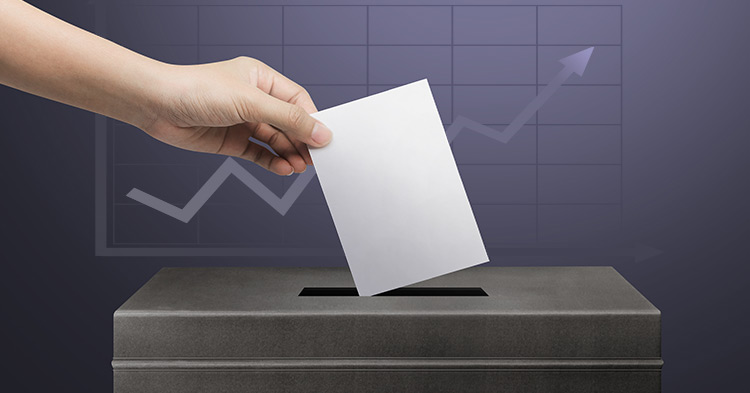OneInsure Blog
Even with 2019 General Elections, Indian Stock Markets Will Continue to Do Well
Ours is a nation that loves election season. Political parties flinging accusations back and forth; TV channels running agenda-driven, controversy-filled news pieces; and WhatsApp fights with friends and relatives about which leader can truly run the country well – what’s not to love!?
Although the activities mentioned here are pretty harmless to you as a person, there are other attributes of
However, historically, we have seen a number of times that this dip (or upsurge) is only temporary and the markets always bounce back stronger than ever. The reason for this is very simple – political changes matter very little to the performance of the stock market. The most elections can do are cause a sentimental flutter in the market, which results in a temporary high or low that invariably corrects itself in a few months’ time. So, instead of withdrawing your equity investments and losing out on months of compounding benefits, the OneInsure Research Desk recommends you to stay invested. Simply ignore the storm of
So, what decides stock market performance? The following are the
GDP Growth
Gross Domestic Product (GDP) growth is the measure of the economic growth of a country and is driven majorly by consumption, capital investments, and technological advancement. A large young working population increases consumption. India is demographically one of the youngest countries in the world currently. The average age of an Indian is less than 30 years. This demographic benefit is expected to continue for the next 15 years. A young population works and contributes to the nation’s growth.
Inflation under Control
Low inflation rates increase the purchasing power of the people. Reduced interest rates encourage capital investments and economic activity in the country. The low inflation reduces the cost of production for industries. The low cost of production, in turn, increases consumption and economic activity in the country.
Favourable Fiscal Policy
Fiscal policy is the yearly Budget of government revenue collection and expenditure. The fiscal policy influences the economic activity in the country. Government revenue generation is from tax collection, operations of PSUs, or divestment of PSUs. The government spends revenue on human and infrastructure development in the country, that
Trade Surplus/Deficit
The difference between export and import is termed as trade surplus or trade deficit. Currently, India has a comfortable position on forex reserves and the government’s focus on manufacturing in India is helping us move towards trade surplus.


 Comments
Comments

 2019 General Elections, Stock Market
2019 General Elections, Stock Market



